Antibiotic Resistant ‘Superbug’ Detected in Squid
The Centers for Disease Control and Prevention reported Wednesday that a bacterium highly resistant to antibiotics has been found in squid imported from South Korea.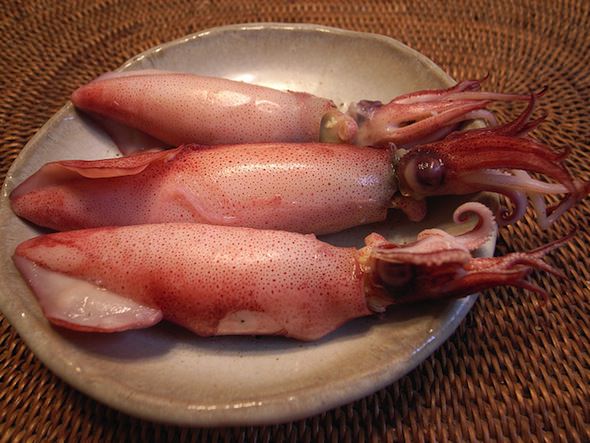
The Centers for Disease Control and Prevention reported Wednesday that a bacterium highly resistant to antibiotics has been found in squid imported from South Korea.
The letter reporting the finding states that a variety of common bacterium carrying a gene that directs production of an enzyme called VIM-2 carbapenemase was identified.
According to Maryn McKenna at Wired:
It’s the “carbapenemase” that is the troubling factor here. Carbapenems are the truly last of the few remaining last-resort antibiotics in the world. The global advance of carbapenem resistance — via superbugs such as NDM from Asia, and OXA and VIM primarily from southern Europe — is what the CDC’s director was talking about last year when he referred to the worldwide threat from “nightmare bacteria.”
Most of the spread of carbapenem resistance has been through people, who picked it up in a hospital or acquired it accidentally from contaminated water, especially in south Asia. But because carbapenem resistance largely travels via gut bacteria, some microbiologists have been apprehensive that it might get into the food chain. After all, many common foodborne diseases arrive via what’s politely called the “fecal-oral route” — which is to say, fecal bacteria got on the food you eat. Since some of those bacteria, such as E. coli, are known to carry NDM and the other carbapenemases, it made sense to wonder whether food could transmit them also. It’s an especially important question because the government surveillance programs that look for resistant bacteria on food are limited in the geographical sites, types of food, and types of bacteria they look for — so the possibility has always existed that something could sneak through.
The authors reported in the letter:
THE SCOPE OF ANTIMICROBIAL DRUG RESISTANCE SURVEILLANCE PROGRAMS IS LIMITED TO MAJOR AGRICULTURAL PRODUCTS (POULTRY, BEEF, AND PORK). IN OUR MODERN, ETHNICALLY DIVERSE SOCIETIES, NICHE-MARKET MEAT PRODUCTS, INCLUDING IMPORTED FOODS, ARE BECOMING INCREASINGLY COMMON. WORLDWIDE DISSEMINATION OF THE KLEBSIELLA PNEUMONIAE, VIM, OXA, AND NEW DELHI METALLO-B-LACTAMASE TYPE CARBAPENEMASES AMONG HUMANS HAS BEEN FACILITATED BY INTERCONTINENTAL PASSENGER TRAVEL, BUT THE ROLE OF THE GLOBAL FOOD TRADE IN THIS DISSEMINATION HAS NOT BEEN INVESTIGATED…
AMONG OTHER ITEMS, THE SQUID WAS PURCHASED FROM A CHINESE GROCERY STORE IN SASKATOON, CANADA, IN JANUARY 2014 AS PART OF A DRUG-RESISTANCE SURVEILLANCE PILOT STUDY. ALTHOUGH NO COUNTRY-OF-ORIGIN LABELING WAS AVAILABLE FOR INSPECTION, THE STORE OWNER REPORTED THAT, ACCORDING TO THE DISTRIBUTOR, THIS SQUID ORIGINATED IN SOUTH KOREA.
McKenna continues:
Beyond the obvious, that this is a first finding of a resistance factor where it has not previously been, here are some concerns: Because the carbapenem-resistant bacteria tend to be gut bacteria, anything that conducts them into your gut—like, for instance, swallowing them—is problematic. The issue isn’t that the bacterium is going to cause a foodborne illness immediately; the bacteria carrying this gene was not a disease-causing variety. Rather, the concern is that the DNA conferring this resistance passes from this bacterium into the vast colony of diverse bacteria that live in your gut for your entire life, becoming incorporated into your gut flora and posing a risk of drug-resistant illness at some future point when the balance of your immune system slips.
Read more here.
— Posted by Alexander Reed Kelly.
Your support matters…Independent journalism is under threat and overshadowed by heavily funded mainstream media.
You can help level the playing field. Become a member.
Your tax-deductible contribution keeps us digging beneath the headlines to give you thought-provoking, investigative reporting and analysis that unearths what's really happening- without compromise.
Give today to support our courageous, independent journalists.
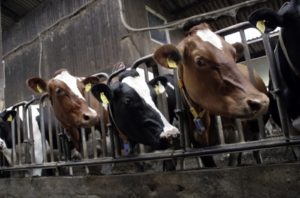

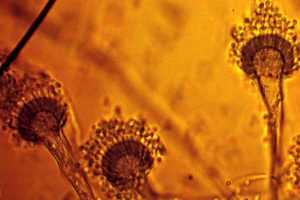
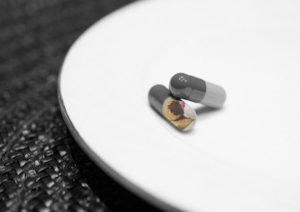

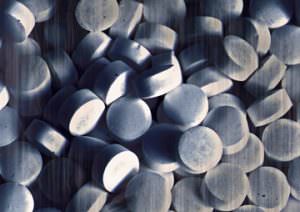
You need to be a supporter to comment.
There are currently no responses to this article.
Be the first to respond.